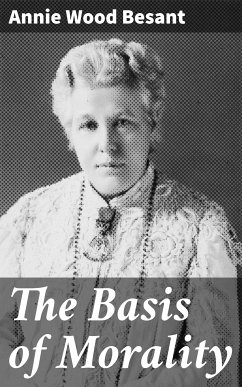
The Friendly Daemon, or the Generous Apparition (eBook, ePUB)
Enriched edition. Exploring Virtue and Supernatural Intrigue in 18th Century Fiction
Kommentar: Parsons, Zoe / Redaktion: Good Press

PAYBACK Punkte
0 °P sammeln!
In "The Friendly Daemon, or the Generous Apparition," Daniel Defoe presents a compelling exploration of morality and human potential through the lens of an engaging supernatural narrative. Set against the backdrop of early 18th-century England, the novel deftly intertwines elements of realism with fantasy, reflecting Defoe's mastery of prose and his keen interest in contemporary social issues. Through the figure of the benevolent daemon, the text examines the complexities of human desires, the ethics of generosity, and the transformative power of community, a theme resonating with the emerging...
In "The Friendly Daemon, or the Generous Apparition," Daniel Defoe presents a compelling exploration of morality and human potential through the lens of an engaging supernatural narrative. Set against the backdrop of early 18th-century England, the novel deftly intertwines elements of realism with fantasy, reflecting Defoe's mastery of prose and his keen interest in contemporary social issues. Through the figure of the benevolent daemon, the text examines the complexities of human desires, the ethics of generosity, and the transformative power of community, a theme resonating with the emerging Enlightenment thought of Defoe's time. Daniel Defoe, best known for his groundbreaking novel "Robinson Crusoe," had a lifelong engagement with societal concerns, including economics, individualism, and the human condition. His diverse experiences as a merchant, journalist, and pamphleteer informed his rich characterizations and intricate plots. "The Friendly Daemon" illustrates his belief in the potential for goodness within human nature, a reflection of his own life's tumultuous journey and philosophical inquiries into morality. This enchanting narrative is highly recommended for readers who are drawn to thought-provoking literature that bridges the gap between reality and the supernatural. Defoe's unique style and profound themes not only entertain but also encourage critical reflection on societal values and the essential goodness that can arise from generosity. In this enriched edition, we have carefully created added value for your reading experience: - A succinct Introduction situates the work's timeless appeal and themes. - The Synopsis outlines the central plot, highlighting key developments without spoiling critical twists. - A detailed Historical Context immerses you in the era's events and influences that shaped the writing. - An Author Biography reveals milestones in the author's life, illuminating the personal insights behind the text. - A thorough Analysis dissects symbols, motifs, and character arcs to unearth underlying meanings. - Reflection questions prompt you to engage personally with the work's messages, connecting them to modern life. - Hand-picked Memorable Quotes shine a spotlight on moments of literary brilliance. - Interactive footnotes clarify unusual references, historical allusions, and archaic phrases for an effortless, more informed read.
Dieser Download kann aus rechtlichen Gründen nur mit Rechnungsadresse in A, B, BG, CY, CZ, D, DK, EW, E, FIN, F, GR, H, IRL, I, LT, L, LR, M, NL, PL, P, R, S, SLO, SK ausgeliefert werden.














